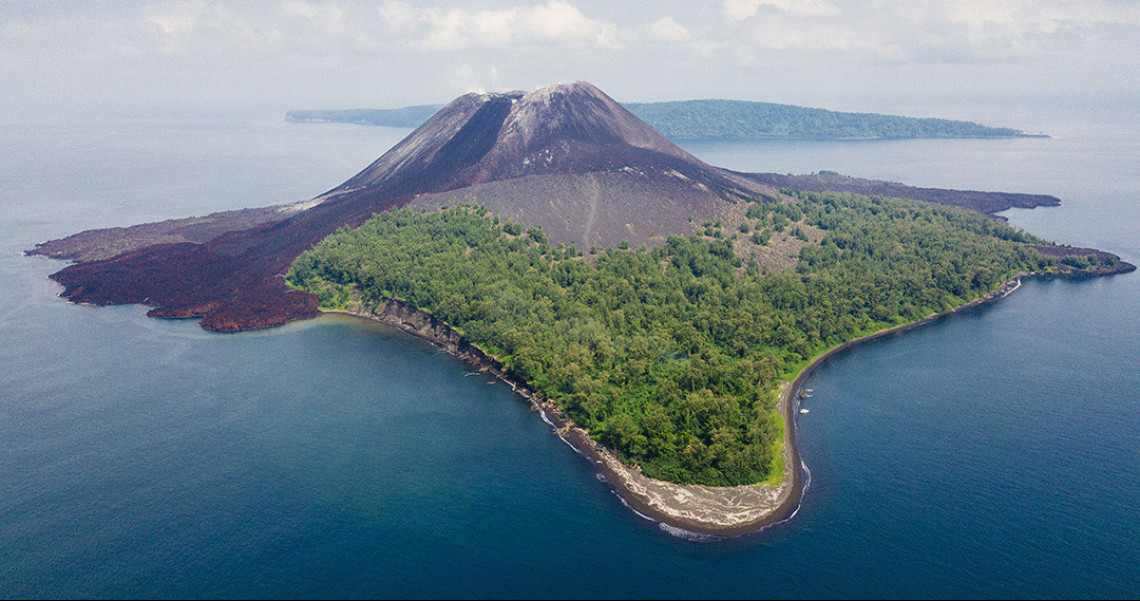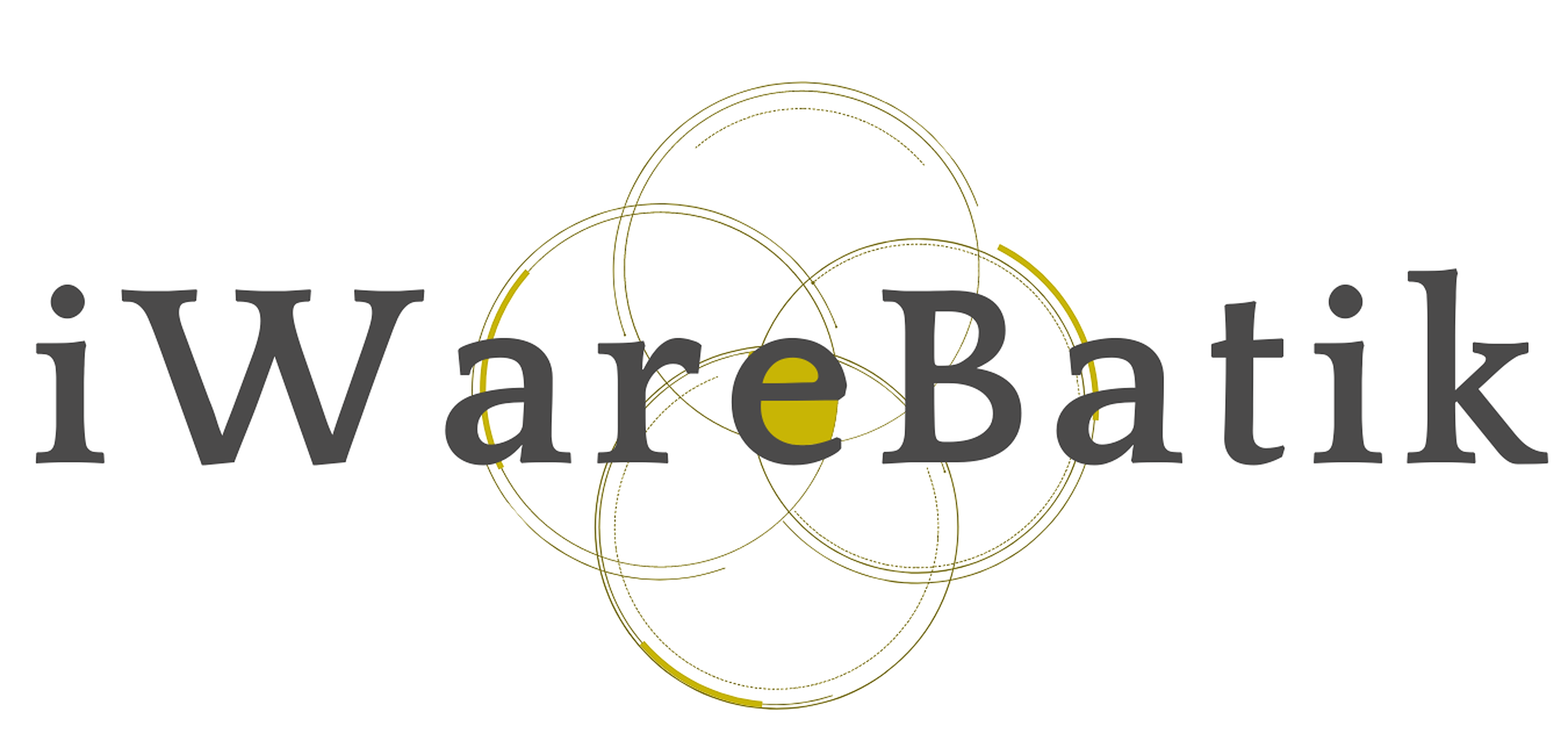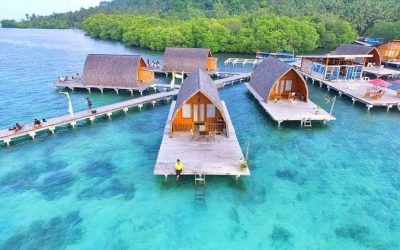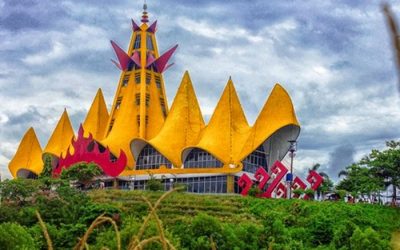Home / Batik Regions – Western Indonesia – Southern Sumatra – Lampung / Krakatau Volcano
Nature Destination
Experience the Tropical Nature!
Krakatau Volcano

The Krakatau Mountain (photo: Pesona.Travel)
Krakatau Volcano
Krakatau remains one of the world’s most well-known volcanoes due to its notorious 19th-century eruption. Located between Java and Sumatra Islands, it is a natural reserve area that is worth visiting for adventure, education, and research purposes. Visit www.volcanodiscovery.com for up to date seismic activity information before booking your trip.
Tourist Attractions in Lampung
Pahawang Island
Pahawang Island has an amazing natural marine ecosystem. The island definitely has
Kenali Village
Every region in Indonesia has a particular traditional house that represents
Bandar Lampung City
It is the capital city in this region. Despite its congested town, it is full of
Lampung
Batik Motifs
Pohon Hayat (Tree of Life)
The Batik motifs in Lampung are dominated by the acculturation of Buddhist and
Mahkota Siger
Siger is the crown of a noblewoman in ancient time. It is a symbol of femininity, strength, and
Gajah Way Kambas
The motif illustrates the Lampung’s natural reserve, the Way Kambas. it also symbolizes
Gamolan
This motif illustrates Gamolan, a bamboo musical instrument of Lampung that is
Discover
Indonesian
Batik
Motifs
Bultiya
The word ‘Bultiya’ is an acronym of the three major tribes in North Kalimantan, namely
Kawung
The Kawung motif was created by Sultan Agung Hanyokrokusumo (1593 – 1645) as a symbolic gift for
Kasih Tak Sampai
‘Kasih Tak Sampai’ is an idiom in the Indonesian language which refers to
Mahkota Siger
Siger is the crown of a noblewoman in ancient time. It is a symbol of femininity, strength, and
Parang Seling
Parang Seling or “alternating daggers” is a royal batik motif. It is a feminine variant of
Gumin Tambun
Based on Hindu mythology, this motif symbolizes lucks, abundant wealth, and
Rumah Mamuju
the Batik motif illustrates the house of Mamuju King with the stairs, located on the left of the wooden stage house
Sandeq
Sandeq Boat is a symbol of the maritime importance of the West Sulawesi region. The greatness of
Insang Ikan
Insang refers to the gills of the fish. This is a typical pattern of Malay ethnic who inhabits
Bale Lumbu
This motif signifies the welfare of the ancient Sasak society. Bale also symbolizes the
Keluak Daun Pakis
The word “Keluak” is a Minang language which means twisted or tangled. The Motif of
Daun Simpor
This motif is inspired by the Simpor plant (Dillenia Suffruticosa) which is a typical
Lipaq Sabe
Lipaq Saqbe contains a simple geometric classical motif with various flower decorations. This textile is
Singayaksa
The Singayaksa motif comes from the name of a place where Sultan Hasanuddin used to
Prada Papua
The word “Prada” in the Javanese-Indonesian dialect means a batik textile that
Tabir Tanjung
Tanjung flower is a type of Cherry tree flower, which is commonly found in
Honai
The Honai is inspired by the traditional house of the Papuan community living in
Tengkawang Ampiek
With its many advantages, the Dayaks use this leaf in ritual ceremonies. This plant is a symbol of
Malinau Cultural Festival
You will witness a unique competition that might not be found other than in
Buketan Bali
The Balinese bouquet (Buketan Bali) is a floral arrangement and the name is
Kuda Kupang
Horses symbolize wealth. It contains noble values of virtuous characters that bring
Gentala Arasy
Built as high as 80 meters, the tower also highlights the historical side of
Manguni Minahasa
Manguni is identified as the symbol of the Minahasa people. Manguni is known as a
Kaharingan
The Kaharingan or ‘tree of life’ based on the Dayak tribes’ belief system. This tree symbolizes
Lok Baintan Floating Market
As you can imagine, the most authentic thing is that you can buy things and even
Awan Berarak
Awan Berarak is a combination of Dayak motifs and Malay patterns. The word ‘Awan Berarak’ means the
Biji Kopi
The coffee seeds motif illustrates the pride of local coffee specialities in
Tenun Bima
The motifs are adopted from Bima woven textile. This pattern has received a great
Teguh Bersatu
This batik motif shows the strength of the people of Kupang. It also represents a sense of
Pattimura
Pattimura is the name of an Indonesian hero who fought against colonialism in
Wakatobi
It symbolizes the coastal beauty of the Wakatobi island and the symbol of Patra symbolizes
Paqbarre Allo
The word “Barre” means round and “Allo” means the sunlight. This motif is interpreted as
Karawo Pinang
Pinang refers to the Palm areca tree. This motif is considered as the original
Karawo Mahkuta
Mahkuta refers to Gorontalo’s traditional crown. It represents noble characters of
La Galigo
La Galigo is a literary work of the Buginese Epic that has 300 thousand epic lines. It is considered even
Gurdo Solo
Gurdo or garuda bird is the mount of the Indian god Vishnu. As the Sun Bird,
Gamolan
This motif illustrates Gamolan, a bamboo musical instrument of Lampung that is
Durian Pecah
Broken Durian motifs depict the foundation of faith. The second half signifies the mastery of
Merak Ngeram
The hatching peacock motif has a very deep meaning which refers to the sacrifice and
Gajah Way Kambas
The motif illustrates the Lampung’s natural reserve, the Way Kambas. it also symbolizes
Gorga Simeol-Meol
The Gorga Simeol-meol is a pattern of plant tendrils. it is regarded as a symbol of longevity and
Pati-Pati Pinehiku
It symbolizes the hierarchy in society and the social status of the Mekongga
Tampuk Manggis Sasirangan
The motif illustrates the philosophy of the mangosteen fruit, which is
Jumputan Bintang
The word Jumputan means the tie-dye technique, while the word “Bintang” refers to
Ake Patra
Ake is related to the divinity and the composition of the universe. It is a symbol of
Sido Mulyo
Sidomulyo is one of the classical motifs, which is specifically used for the bride’s costume in
Tikar Natuna
The Tikar Natuna motif is adapted from the traditional making of pandanus mats in
Pohon Hayat (Tree of Life)
The Batik motifs in Lampung are dominated by the acculturation of Buddhist and
Sekomandi
Its philosophical meaning is the eternal union which refers to a saying “until death do us part”
Burung Bidadari
Bidadari birds are endemic birds in Halmahera. This motif represents an
Sero Tangga
The Sero Tangga illustrates an endearing feeling and sacrifices of a person to fulfil
Kaganga Tanah Rejang
If Batik Besurek combines Arabic calligraphy motifs, then the Kaganga batik takes
Besurek Rembulan
This batik illustrates praise for God who created the wonderful universe
Jupri Kembang Teh
Kembang Teh illustrates the tendrils of tea plants that grow in the highlands of
Dayak Taghol
Dayak Taghol has a distinctive style of four curved lines and small dots. This motif represents
Tongkonan
Toraja’s traditional house is called Tongkonan. Tongkonan is a place for
Kerawang Tegak Aceh
The Vertical Upright (Kerawang Tegak) Motif symbolizes a person who has a strong
Daun Lada Hitam
The black pepper motif represents the main commodity of Bangka Belitung
Parang Rusak
Another meaning behind this motif is an unconquerable spirit, symbolized by
Gonggong Siput
Gonggong (Strombus Turturella) is one type of sea snail found around
Hiu Taliyasan
Indonesia is also home to the world’s largest fish, the whale shark (Rhincodon typus). Hiu Taliyasan refers to
Tubo Kelapa
Coconut tree is a symbol of a good character and strong mentality. It illustrates the more success a person, the more
Gedhog Kembang Waluh
a combination of Javanese cultural motif of the Majapahit kingdom (XII-XIV century) with
Ikan tambal
The word “Ikan” refers to fish. The philosophical meaning of Ikan Tambal means is
Bintik Tujuh
The Bintik Tujuh (Seven Dots) motif has 7 white spots and green color gradation as
Pala Salawaku
This motif illustrates the unique weapons of the Maluku region, namely
Daun Sirih
This motif illustrates betel leaves that are used by Lombok communities as traditional
Bomba Mawar
This motif means sacred love for family, kingdom, and God; It also illustrates
Leuit Sijimat
This motif reflects the daily activities of the Baduy tribe in Banten. The main ornaments of batik motif consist of:
Besurek Rafflesia
The term “Basurek” refers to a textile that contains letters or inscriptions
Dayak Kamang
Kamang motif is generally found in the Dayak tribe shield because it is believed to
Tanah Liek
The word “Tanah Liek” refers to clay in Minang language. It is also known as



